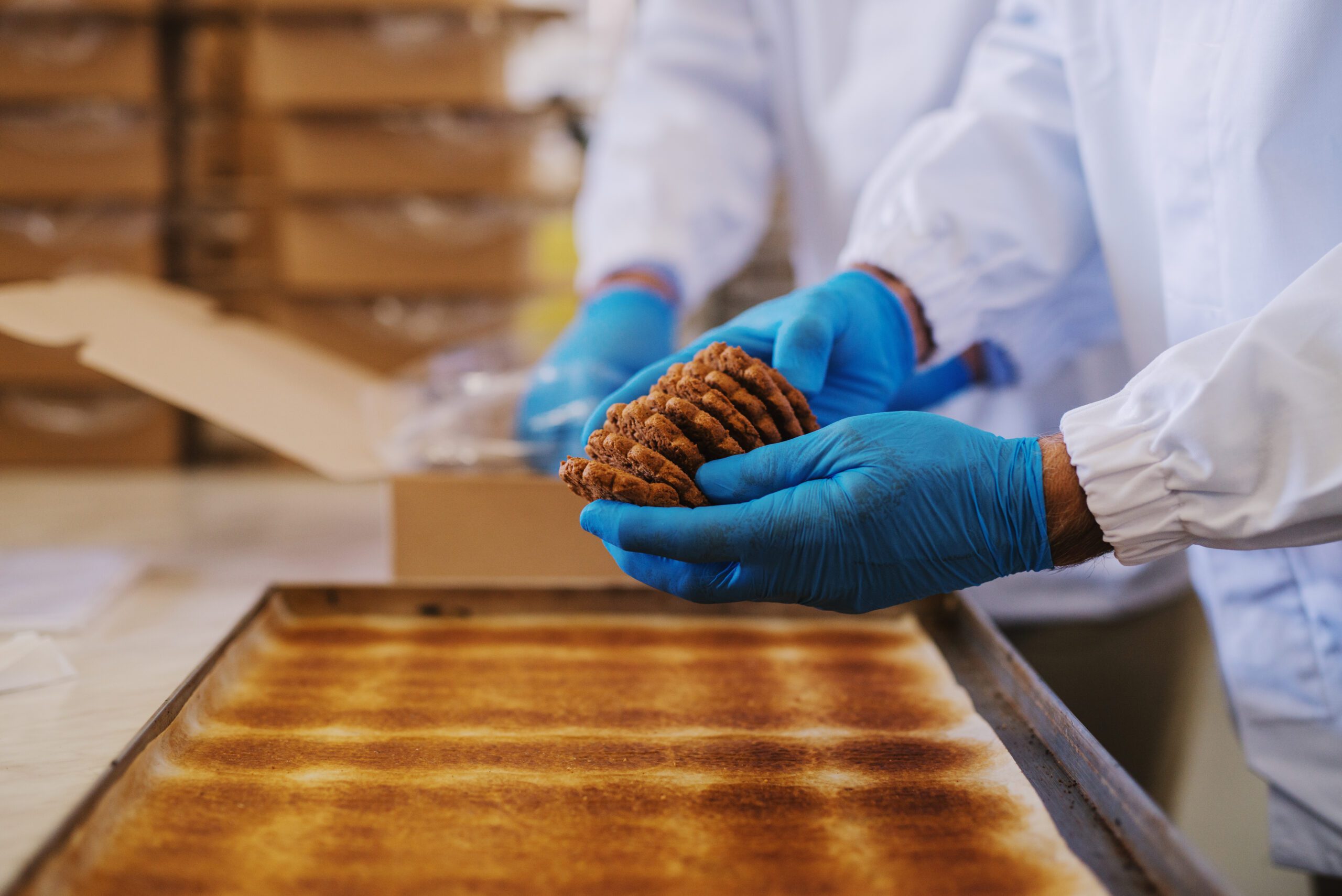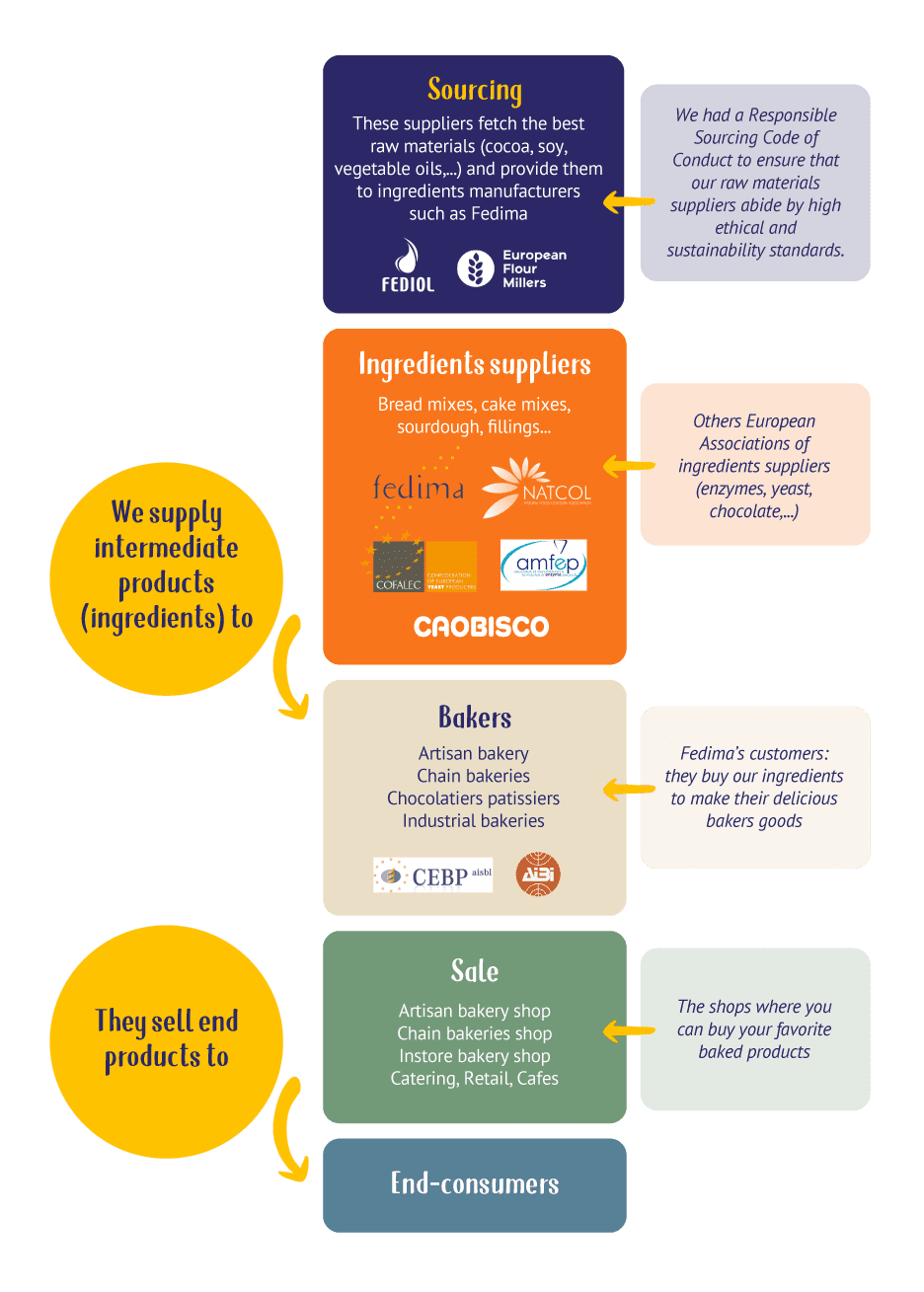Foreword
by Fedima's president
Thomas Lesaffre,
President of Fedima
Dear members, dear readers,
I am delighted to present to you Fedima’s 2023-2024 Annual Report, in which you will find insights into our sector, an overview of our main accomplishments of the past year, as well as a preview of what’s in the pipelines in the coming months.
My first year as President has been marked by unique circumstances, from rising geopolitical uncertainties at the border of the EU, to a continued increase of costs. The year 2024 is also extraordinarily shaped by the run up to the 2024 European elections, a crucial moment for all European citizens and industry representatives such as Fedima to stop and think about what we want to achieve in the next five years. But the EU elections are only the beginning: their outcome changes the regulatory landscape we navigate, a new European Parliament and a new European Commission are forming, and we must be ready for a renewed wave of legislation that will impact our sector greatly and shape the transition of our European food system. From technical matters to sustainability, circularity and nutrition, the coming months will be dedicated to making our vision come to life by raising the visibility of Fedima even more as an expert voice in the sector and as an active partner in the development of a resilient but sustainable food system.
This past year reminded us that our voice is strongest when we raise it together: more than ever, we have been working towards further strengthening our advocacy impact by collaborating with like-minded partners. These efforts proved effective, and I hope they mark only the beginning of a long standing and close cooperation to amplify the needs of the entire European bread and pastry value chain.
Alongside our members, it is also this wider ecosystem that we are looking forward to bringing together at Fedima’s General Assembly in Istanbul, Turkey. Here, I must thank the Turkish National Association GIDABIL for opening their doors to the Fedima community in hosting our annual event.
This year’s accomplishments would not have been possible without the support of my Fedima leadership colleagues Juan Carlos Puente and Enric Valls, and the entire Fedima Board, and I would like to use these few words to thank them for the trust put in me by giving me the honour of being the President of this Association.
I would also like to thank every person that works behind the scenes at Fedima, starting from the Technical, Sustainability, and Marketing & Communications Committee members and Chairs, who dedicate their time and expertise to the day-to-day work of the Association – without them, Fedima could not be.
Lastly, I would like to acknowledge the hard work done by all our member National Association in shaping, communicating and sharing our action plan throughout Europe. A huge thank you goes to them for their continuous support and enthusiasm towards Fedima and our mission to reinforce the position of our industry in Europe.
I hope you enjoy reading our Annual Report, the result of our Association’s hard work during the past year, which provided our industry with plenty of opportunities to shape the environment in which we operate.
Happy reading and thank you for your interest in Fedima!
Fedima at a glance
Fedima is the federation of European manufacturers and suppliers of ingredients to the bakery, confectionery, and patisserie industries. The Association represents the interests of almost 27,000 direct employees across Europe. Fedima’s membership comprises national associations in 13 European countries and represents around 200 companies across Europe, with a combined turnover of 7 billion euros.
Fedima engages at EU level on policy issues of relevance to the bakery and pastry ingredients industry, ensuring its members’ needs are heard. The Association aims to secure access to a single European market for its members and to facilitate their business activities within the European Union.
Since its founding over 50 years ago, Fedima has contributed to the market's growth by engaging with decision-makers to help shape sustainable regulation and public policies. The Association works to provide clear, credible responses to market or political challenges, establishing its position on the European and global stage.
Fedima is also a part of several groups which aim to address specific issues in the broader industry. By working alongside other associations and industry players, Fedima can expand its position in the sector and provide a valuable contribution to discussions and decisions on topics of common interest.
To shape a favourable environment to ensure a sustainable and innovative bakery sector
To be the European bakery ingredients platform to support and grow the bread and pastry market
Our Sector
The European bakery ingredients industry, represented by Fedima, is operating halfway along the supply chain, between 'farm' and 'fork': we are at the crossroads between production and consumption of bread, patisserie and confectionary products.
The companies represented by Fedima supply a wide range of products to artisan and industrial bakers, chocolatiers and pâtissiers, so that they can prepare the delicious baked goods that we all love.
To coordinate and address common challenges across the bakery value chain, Fedima and other European trade associations (AIBI, CEBP, COFALEC, and EFM) continuously and successfully work together around a roundtable called the Bread Initiative, created in 2015 to promote the value of bread in Europe.
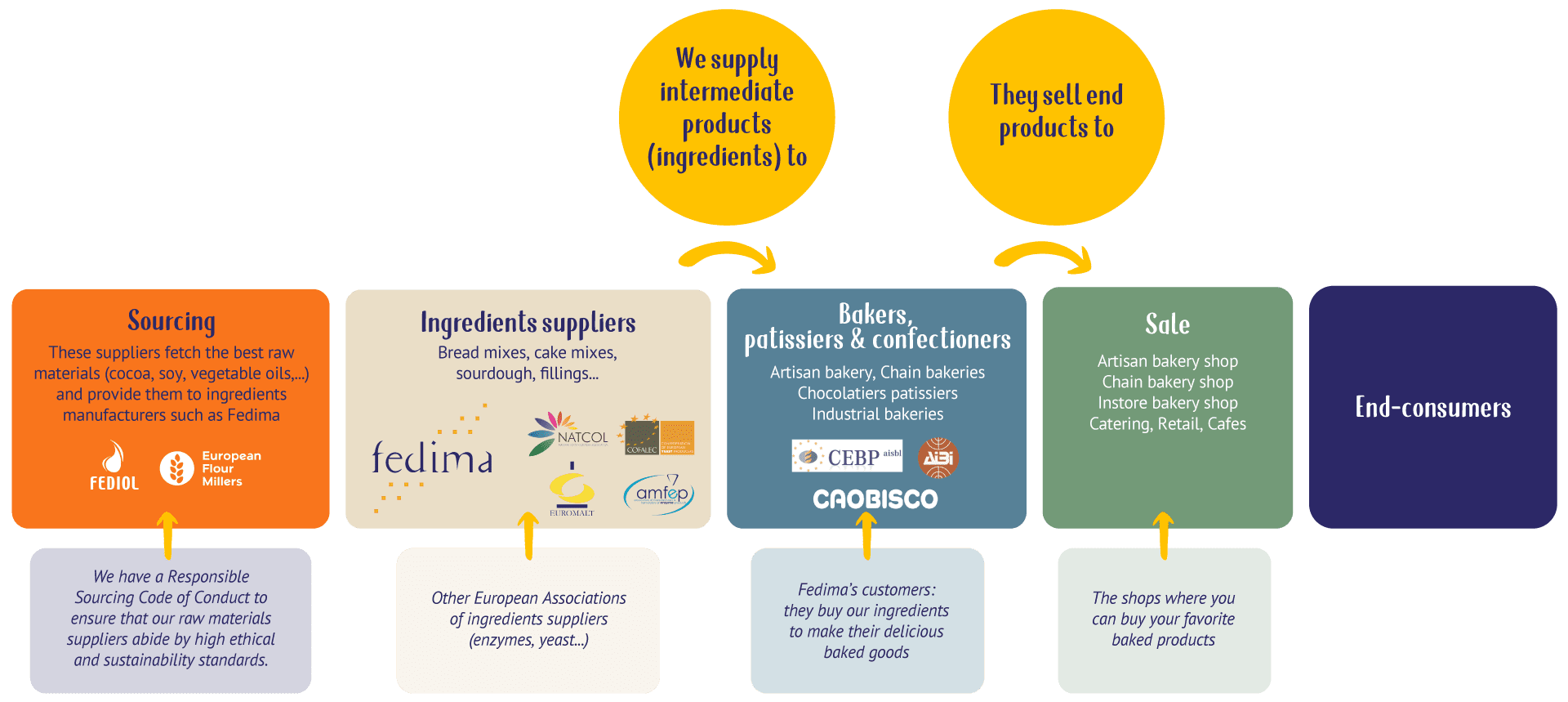

Our work
To actively support our members and, in turn, their members, Fedima takes decisive action in four fields:
Market
Knowledge
Gathering and sharing information about Fedima’s market and the principal categories of interest, with the aim of better understanding any developments in the sector.
Regulatory & Legislative Affairs
Becoming a key knowledge partner for regulatory bodies, offering positions on main policy areas.
Value
Creation
Promoting Fedima’s position in the value chain and establishing connections across the industry.
Reputation
Building
Increasing internal and external awareness of Fedima’s activities, expanding influence in relevant sectors, and working towards being a leader in the industry.


We work to address multiple interrelated subjects of interest with the ultimate aim of further developing trust and reputation, increasing stakeholder engagement and member participation in relevant areas, and establishing the Association as a thought leader in the sector.


The Association’s work is organised around five overarching workstreams. These five interdisciplinary workstreams collaborate to drive forward the work of Fedima and expand the Association’s reach and influence internally as well externally.
Advocacy & Network building
Ensure a positive regulatory framework that allows the industry to grow.
+ Read moreThe Fedima Community
Establish a solid and representative association, streamlining communication with and between the members.
+ Read moreTechnical Committee
Align regulatory and policy approaches to defend the interests of the sector.
+ Read moreSustainability Committee
Identify sustainability concepts and projects to help build a responsible bakery ingredients industry and meet the UN Sustainable Development Goals.
+ Read moreMarketing & Communications Committee
Support and grow the positive image of the bread and pastry market and communicate the work of the association.
+ Read moreAdvocacy and Network Building
Advocacy and Network Building activities help Fedima strengthen policy positions and contribute to shaping crucial pieces of legislation. The Association creates, consolidates, and expands a network of other associations as well as institutional contacts to promote Fedima's message, and legitimise its position as a key player in regulatory discussions.
YEARLY ACTIVITY RECAP
A strong European network in Europe is essential for Fedima, as we cultivate our relationship with our closest and most longstanding partners in the bakery value chain and beyond.
-
BREAD INITIATIVE
Fedima is a longstanding member of the Bread Initiative, a platform representing the European bread value chain with the objective of promoting the image and role of bread in the European economy and culture. In the past year, the Bread Initiative partners (AIBI, CEBP, COFALEC, European Flour Millers and Fedima) have focused their efforts on developing their EU vision paper “Keeping Bread on the Table”.
Learn more about our ‘Keeping Bread on the Table’ vision paper from Secretary General Dirk Van Hamin our dedicated insight.
-
EUROPEAN FOOD SECTOR
At the same time, a strong collaboration with the wider European food sector is essential for Fedima to further amplify our voice. In addition to the active participation to the regular meetings of FoodDrinkEurope, our historical partner, we also had the chance to connect with representatives of other food sectors during FoodDrinkEurope’s annual ‘Ideas Fest’ in June 2024. The event brought together FDE members to share best ideas and innovations behind our food future. Fedima participated to the sessions on “The future of dairy” and on “Why do we process food?”
-
SPEAKING OPPORTUNITIES
Fedima is always looking to expand its collaborations and partnerships. This year, our President Thomas Lesaffre joined the EUROMALT annual conference on July 4th, to speak about the point of view of EU bakers and confectioners on malt uses, which opened the door for a strengthened partnership with this friendly European association
-
INTERNATIONAL DIALOGUE
2024 has been a year of key political changes, with almost half of the world population heading to the polls. With this in mind, Fedima has expanded its collaboration and dialogue with our sectoral counterparts across the globe event further. Looking across the Atlantic, we have strengthened our ties with the American Bakers Association (ABA) by having their President participate to a Fedima Board meeting for an insightful exchange of perspectives and ideas for future collaboration.
How Can the EU Help us Keep Bread on the Table: A Vision by the Bread Initiative
The 2024 European elections were set to play a pivotal role in shaping a myriad of policies that affect Member States and beyond, including food policy. As voters across Europe cast their ballots, they were not just determining a new European political landscape, but also setting the course for future regulations on food safety and security, energy market, sustainability standards, and public health initiatives. The elected representatives and the composition of the European Parliament will drive decisions that impact everything from energy subsidies to food labelling laws, and from trade agreements to environmental sustainability goals.
Wary of the interconnectedness of political decisions and the everyday lives of European citizens, the Bread Initiative, of which Fedima is a longstanding member, has put forward a set of key requests in a vision paper that should guide EU policy making during the next European Parliament term.
With one united voice, we ask for the cooperation of Brussels decision-makers in making sure that our sector can continue being able to put our bread on the table of European citizens and ensure the social and environmental benefits coming from our activities.
The re-elected European Commission President, Ursula von der Leyen, has already called out the strategic importance of the EU agri-food sector in her Political Guidelines 2024-2029, and engaged with FoodDrinkEurope to shape a Vision for Agriculture and Food, including a strong and competitive food and drink sector.
Food security, a streamlined regulatory scene, sustainable transition, nutrition and health, affordable energy and attention to workforce: only by prioritising these aspects can the European bread value chain keep bread on the table.


By Dirk Van Ham, Secretary General of Fedima
How do we keep bread on the table?
Food security
Ensure the availability of local bread-making wheat
Red tapes
Streamline EU legislation, while reducing disproportionate regulatory burdens
Sustainability
Support the transition to more sustainability in the bread supply chain
Nutrition & health
Recognise the crucial role of bread in European citizens' diets
Energy
Secure the access to affordable energy within the bread supply chain
Workforce
Help promote skills & education for young bakers and millers in Europe
The Fedima Community
The Fedima Community ensures strong representation of Fedima at national and European level and encourages a regular exchange and strategic alignment within Fedima’s membership. The Fedima Community works towards increased horizontal cooperation to maximise the impact of work done at EU and national level.
YEARLY ACTIVITY RECAP
-
CEO ENGAGEMENT
Replicating our efforts of 2022, we touched base with the CEOs of the companies composing the Fedima Advisory Committee, conducting around of useful engagement meetings to gather feedback, share insights and exchange thoughts on the direction of the association.
-
CONTACT WITH NAs
It is crucial for Fedima to maintain a close and regular contact with our national member associations, in order to better understand their realities, the challenges and the opportunities they are faced with at national level. To strengthen the relationship with our members, the Fedima Secretariat joined our UK member ABIM’s General Meeting in London in April, and our French member SYFAB’s General Assembly in March, an opportunity to share the latest Fedima updates and call for stronger collaboration.
-
MARKET SHARE DATA
Fedima collects data about its membership to showcase the total market share that it accounts for across Europe. This type of data collection is beneficial for both the National Associations and Fedima, to accurately depict the considerably large size of our European Association when engaging with politicians and stakeholders.
-
POLICY GRID
To better understand the regulatory developments in other countries, Fedima has kicked off the regular circulation of a national policy grid to the Fedima community to identify the most recent policy highlights at national level.
Reinforcing the Fedima Community: The Power-up of the Secretaries General Committee
The strength of an association lies in the sense of community and collaboration between its members. The Fedima community is based on horizontal collaboration, the sharing of best practices, and ensuring open and regular communication with our national member associations.
This year in particular saw a great ambition to bring our members even closer by bringing together the Secretaries General of our national associations, powering up the Secretaries General Committee that was already in place as an advisory body within Fedima.
The purpose of the powered-up Secretaries Generals Committee is to provide a forum to discuss national associations’ realities in the face of the current challenges for our sector and to coordinate on policy priorities in a year where Europe is hit by an unprecedented wave of national elections, other than the European elections. It is of great importance to have a dedicated space for the Secretaries General of Fedima members, as it creates an avenue of thematic discussion on specific issues that national associations wish to put on the agenda of the Federation.
I am honoured to have been elected by my esteemed colleagues as the first Chair of the revived Secretaries General Committee and I look forward to representing the Committee and its suggestions at the Fedima Board.
I encourage all my fellow Secretaries General to join our meetings as they will enable them to be directly involved in the actions of Fedima and propose topics and issues that are close to their priorities. This type of discussion is crucial for Fedima to better align its activities with the needs of its members.


Christof Crone, Chair of the Secretaries General Committee
Technical Committee
The Technical Committee comprises experts delegated by the companies and the National Associations. It evaluates all public policy and regulatory developments that impact Fedima members and provides guidance to enable them to navigate the regulatory landscape. Specific expert groups have been created for discussions on particular topics or horizontal matters.
The TC is organised into 5 expert groups (EGs), each providing expertise on a specific topic:
- EG on Labelling
- EG on Enzymes
- EG on Contaminants
- EG on Sourdough
- EG on Ingredients
Additionally, in order to drive the work on specific projects and documents, the TC is also supported by targeted taskforces:
- Taskforce on precautionary allergen labelling
- Taskforce on functional Ingredients
- Taskforce on enzymes labelling
- Taskforce on ultra-processed food
- Taskforce on mineral oils
- Taskforce on acrylamide
YEARLY ACTIVITY RECAP
- LABELLING
This year, efforts were directed to finding a common approach on PAL. The Technical Committee developed a Q&A on the topic, to be shared with National Associations. Providing common answers for our members on PAL is the first step of a process towards building and advocacy plan on PAL harmonisation at EU level. Fedima also aims to increase collaboration with our bakery value chain partners at EU level, such as the European Flour Millers and FoodDrinkEurope, among others, for a common advocacy towards the European Commission, complemented with efforts by our members at national level, targeting national authorities.
- ENZYMES
Fedima’s Enzyme Expert Group created an ad-hoc taskforce to develop a one-pager on the benefits of enzymes in the bakery industry, in collaboration with AMFEP. The objective is for the one-pager to be used for engagement and awareness raising purposes with EU decision makers and external stakeholders.
- CONTAMINANTS
This past year has seen long-awaited developments on mineral oils, including the regulatory follow-up on mineral oils maximum levels. Following the publication of the EFSA opinion in September 2023, the European Commission shared proposals with a number of stakeholders in December 2023, ahead of its stakeholder forum in January 2024. Fedima promptly reacted and set up a taskforce to prepare Fedima’s intervention during the stakeholder forum, as well as to share a follow-up letter to the Commission outlining our concerns for the sector. As the process progresses, Fedima maintains close contact with allies and is ready to keep defending the position of the sector going forward.
- SOURDOUGH
This year, the efforts regarding the endorsement of the Fedima “Understanding Sourdough” paper continued. The ongoing efforts resulted in the endorsement from our German member Backzutatenverband e.V., that joined the other five National Associations already endorsing the paper. Discussions are ongoing with the remaining National Associations to ensure wider endorsement
Ensuring Ingredient’s Safety and Regulatory clarity: Fedima’s Commitment to excellence.
Ingredients play an essential role in the food sector and are the centre of our members’ core business as manufacturers and suppliers of ingredients to the bakery, confectionery and patisseries industries.
The commitment of our sector to ensure the quality and safety of our products, starting from the ingredients we use, has driven an important part of the work of Fedima’s Technical Committee this year. For example, Fedima has participated to the calls for data from EFSA and the European Commission on several food additives used within our sector (such as gluconic acid and related food additives, food additives in gaseous form, tartaric acids, etc.), has joined forces with NATCOL to provide data on beta-carotene and apocarotenal, but also closely engaged with EFEMA on the new regulatory requirements applicable to some emulsifiers. This collaborative approach with different stakeholders aims to secure that the use of such ingredients in the products Fedima represents is maintained, while assuring that they meet stringent safety standards and regulatory requirements.
On the other hand, clarity when it comes to the regulatory status of ingredients remains an element of key importance. In this context, Fedima has been working on supporting members in navigating the complexities of ingredient’s usage. Having a clear and harmonised approach at EU level to determine the regulatory status of ingredients, in particular in determining if those are a food additive, is of critical relevance. By bringing clarity in this domain, Fedima engages in securing a level playing field for food manufacturers across the chain while contributing to sustain our customers and consumers’ confidence in the products we produce.
As a result, Fedima keeps working on an internal guidance on functional ingredients (an ingredient with a single or multiple functions) designed to help members determine in which case one of their ingredients constitutes a simple ingredient or an additive from a regulatory point of view. After consolidating a strong rationale, Fedima will now be looking at advocating for the recognition of the criteria and approach defined in the guidance developed in front of decision-makers and in collaboration with our partners from the food sector.
Overall, securing common and coordinated messages on topics of interest to our members and advocating on them is a prevalent objective across all our expert groups within the Fedima Technical Committee. In the context of increased scrutiny around the use of certain ingredients, ensuring a sound, science-based safety assessment, proper labelling and use is atthe core of our activities. This has been the aim behind different initiatives developed this year, as for example, our new poster on the benefits of enzymes use in the bakery industry, our contribution to the Commission’s call for data usage on food additives, as well as Fedima participation in the Commission’s stakeholders consultation on a legislative proposal on mineral oil hydrocarbons in food.
As Chair of the Technical Committee, and with the contribution of the Chairs of Fedima’s Expert Groups, I am honoured to lead these efforts and reinforce our commitment to excellence in every aspect of ingredients management.


Sofia Morais, Chair of the Fedima TechnicalCommittee
Sustainability Committee
The Sustainability Committee comprises experts delegated from the companies and the National Associations. It serves as a platform to share ideas and best practices on sustainability. It also is tasked with evaluating and monitoring the actions and commitments undertaken by the industry. The Committee also develops common positions and commitments on policy issues related to sustainability and identifies long-term ambitions to bring sustainable change to the industry.
YEARLY ACTIVITY RECAP
- RESPONSIBLE SOURCING
During the first months of the year, the Sustainability Committee focused its efforts on the promotion of Fedima’s Code of Conduct for Responsible Sourcing within its membership, with the objective of achieving full endorsement. The Code of Conduct was endorsed by all Fedima members and published on 25 June 2024, showcasing the entire sector’s commitment to ensuring a sustainable and innovative bakery industry. With this own document in place, Fedima can now join the EU Code of Conduct on Responsible Food Business and Marketing Practices.
- SUSTAINABILITY INSIGHTS
This year,the Sustainability Committee also relaunched its bi-annual data collection to gain better insight into the sustainable development of the industry and support Fedima’s work in sustainability with numbers and facts, which will strengthen its advocacy efforts towards EU policymakers. This third edition of the data collection will serve to further monitor the progress and commitment made by our members, which will then lead to the revision of Fedima’s existing position papers on sustainability topics.
- REGULATORY DEVELOPMENTS
The Sustainability Committee has been monitoring the developments of open EU Green Deal files, as most of them were being negotiated and voted on during the last months of the legislature. We closely followed the negotiations on files such as the Packaging and Packaging Waste Regulation and the Green Claims Directive, collaborating with FoodDrinkEurope and other partner associations to bring Fedima’s interests and concerns to the relevant EU decision-makers.
- SUSTAINABILITY WEBINARS
At the end of 2023, the Sustainability Committee held the webinar “Towards a more sustainable food industry: Navigating the CSRD and the ESRS”, which was open for all Fedima members, and during which Tom Dodd from the European’s Commission Financial Markets Directorate General (DG FISMA) provided key information on the Corporate Sustainability Reporting Directive (CSRD) and the European Sustainability Reporting Standards (ESRS), including their practical implications for the food industry, and how to comply with them. As a continuation of this series, a webinar on the EU Deforestation Regulation will be organised after the summer of 2024, in collaboration with various stakeholders, with the aim of providing clarity on the implementation of the Regulation.
Fedima’s Code of Conduct: Guiding Responsible Sourcing Practices in the European Bakery Supply Chain
Sustainability is crucial for all industries, including the bakery industry – a cornerstone of global culinary traditions. From cultivating grains to delivering finished products, every step involves critical decisions that impact the environment, social conditions, and economic viability. With the global bakery market valued at over $416 billion1 in 20231, this industry holds significant potential to drive collective positive change. By embracing responsible sourcing and sustainable practices, bakeries can reduce their environmental footprint and contribute meaningfully to global sustainability goals.
Recognising this responsibility, Fedima has published a comprehensive Code of Conduct for Responsible Sourcing across the bakery supply chain. This code, addressed to suppliers of the bakery ingredients industry, is designed to guide businesses in making conscientious choices that prioritise quality and safety of products, ethical business practices, and environmental stewardship. By adhering to these guidelines, our suppliers can help mitigate adverse impacts such as deforestation, child labour, and greenhouse gas emissions. The aim is to foster a supply chain that not only contributes positively to global sustainability goals, but also meets the growing consumer needs for sustainable products.
The European bakery ingredients industry, represented by Fedima, operates at a pivotal point along the supply chain – between 'farm' and 'fork', between bakery production and consumption. As responsible sourcing becomes an increasingly critical challenge for all stakeholders in the bakery value chain, Fedima’s Code of Conduct for Responsible Sourcing can serve as a guiding light for the entire European bakery sector. Whether it’s small bakeries seeking guidance or large players striving to align with best practices, this code points the way toward a more sustainable future.
What makes this achievement all the more significant is the fact that the Fedima Code of Conduct was advocated for and fully endorsed by all our members, representing over 200 companies across 13 European countries. This is proof that the entire bakery ingredients industry is coming together and playing its part in advancing common, responsible sourcing practices
1"Bakery Products Market Size, Share & Trends Analysis Report By Product, By Distribution Channel, By Region, And Segment Forecasts, 2023 -2030," Grand View Research, 2023.


By Jean-Philippe Michaux, Chair of Fedima’s Sustainability Committee
Marketing & Communications Committee
The Marketing & Communications Committee comprises experts delegated from the companies and the National Associations. It aims to inform and educate policy makers and consumers about the bakery ingredients sector, building compelling narratives. This Committee also works to promote Fedima’s position in the value chain and broader industry and develops relevant communications materials for the members to use at the national level.
YEARLY ACTIVITY RECAP
- VISIBILITY
Over the past year, the MCC has focused on increasing Fedima’s visibility and impact in view of the European elections, to ensure that new policy makers know the priorities of our Association and the wider sector. Most notably, the MCC has supported the Bread Initiative partners in the external outreach to promote our EU-focused vision paper “Keeping bread on the Table” through an extensive social media campaign
- DIGITAL FOOTPRINT
The MCC is also continuously working towards increasing Fedima’s digital footprint through regular activity on Fedima’s LinkedIn page, the ideal window to share Association updates and to put the spotlight on the activities of the members. In 2023 and 2024, the MCC also secured a steady media presence for Fedima in trusted media outlets. From coverage of our new Board election and an interview with President Thomas Lesaffre, to Fedima’s participation to international conferences, and then showcasing our expertise on enzyme handling safety and promoting our newly published Code of Conduct for Responsible Sourcing and Bread Initiative’s EU vision paper, Fedima was mentioned 44 times in the media in the past year!
- COLLABORATIONS
In 2023, for the third year in a row, Fedima partnered with Media Energy Limited, publishers of the Baking Europe quarterly journal, to contribute to the third edition of the Baking Europe Ingredients Market (BEIM) Report. Throughout 2024, Fedima has been in close contact with the Baking Europe publishers to coordinate on the new edition of the report, which will be available in digital format in October 2024. This year, Fedima’s contribution will revolve around the application of emerging technologies to baking, and the role of enzymes in bakery products.
Learn more about our media partnerships from MCC Chair Kris Dierckx in our dedicated insight.
- INTERNAL COMMUNICATION
The MCC ensures that the entire Fedima community is well informed about ongoing activities at EU level and at association level through Fedima’s members-only bi-monthly newsletter. In the past year, six editions of the Fedima newsletter were circulated to the membership.
Increasing the Visibility of Fedima: The Power of Media Partnerships
In today's fast-paced digital world, establishing a strong online presence is essential for any organisation aiming to make a significant impact. For associations like Fedima, and to support our advocacy goals, visibility is not just about being seen–it is also about being understood and respected as an expert voicein our field. One of the most effective ways to achieve this is through strategic media partnerships. By collaborating with trusted media outlets, we can extend our reach, share our expertise with a broader audience, and build a reputation as a leader in our industry.
This is why the MCC has always dedicated great part of its efforts to the establishment regular and structured collaborations with several media partners in the bakery world, securing a constant drum beat around our association’s messages, and bringing our compelling narratives to diverse audiences.
By teaming up with Baking Europe for four years in a row, for example, the MCC has had the chance to share Fedima’s take on several issues of relevance to the bakery industry with their readers: bakers willing to better understand the application of the latest science and research projects on every aspect of the baking industry. The longstanding collaboration between Fedima and Baking Europe has resulted in the annual publication of the Baking Europe Ingredients Market Report, an industry-specific report incorporating the Fedima Annual Industry Update, designed to be a central source of topical insights into the latest developments in the bakery ingredients business.
In the past year, the MCC was particularly eager to find a medium to showcase the technical expertise of Fedima, represented by the great work done by the members of our Expert Groups on several technical matters. This resulted in a new collaboration with Baking & Biscuit International, a bi-monthly trade journal that offers an investigative insight into the baking and biscuit industries on a global level, bringing their readers up to date with new scientific research, technical features, and product updates.
A dedicated interview with Fedima President Thomas Lesaffre kicked off our collaborationat the beginning of 2024, giving readers a taste of who we are and of the work ahead.The MCC then had the chance to work closely with the editorial team to bring our expert voice to their audience with a series of articles, the first one spotlighting on our enzyme experts’ best practices and guidelines on enzyme handling safety.
Ultimately, media partnerships are not merely a tool for visibility – they are a strategic investment in Fedima’s future. By embracing these opportunities, we open doors to new collaborations, foster meaningful connections with new audiences, and ensure our association remains at the forefront of industry developments.
In today’s fast-paced, information-driven world, building visibility and establishing authority are more critical than ever for associations aiming to stand out and make an impact. As we move forward, I am looking forward to exploring other similar avenues, leveraging media partnerships to enhance ourvisibility, share our expertise, and support our advocacy goals.
I am eager to contribute to the growth of our network of trusted partners, as a continuation of the work we have done in the past year, and to see how they will contribute to making Fedima’s voice even stronger.


By Kris Dierckx, Chair of Fedima’s Marketing & Communications Committee
Fedima Membership
Statistics
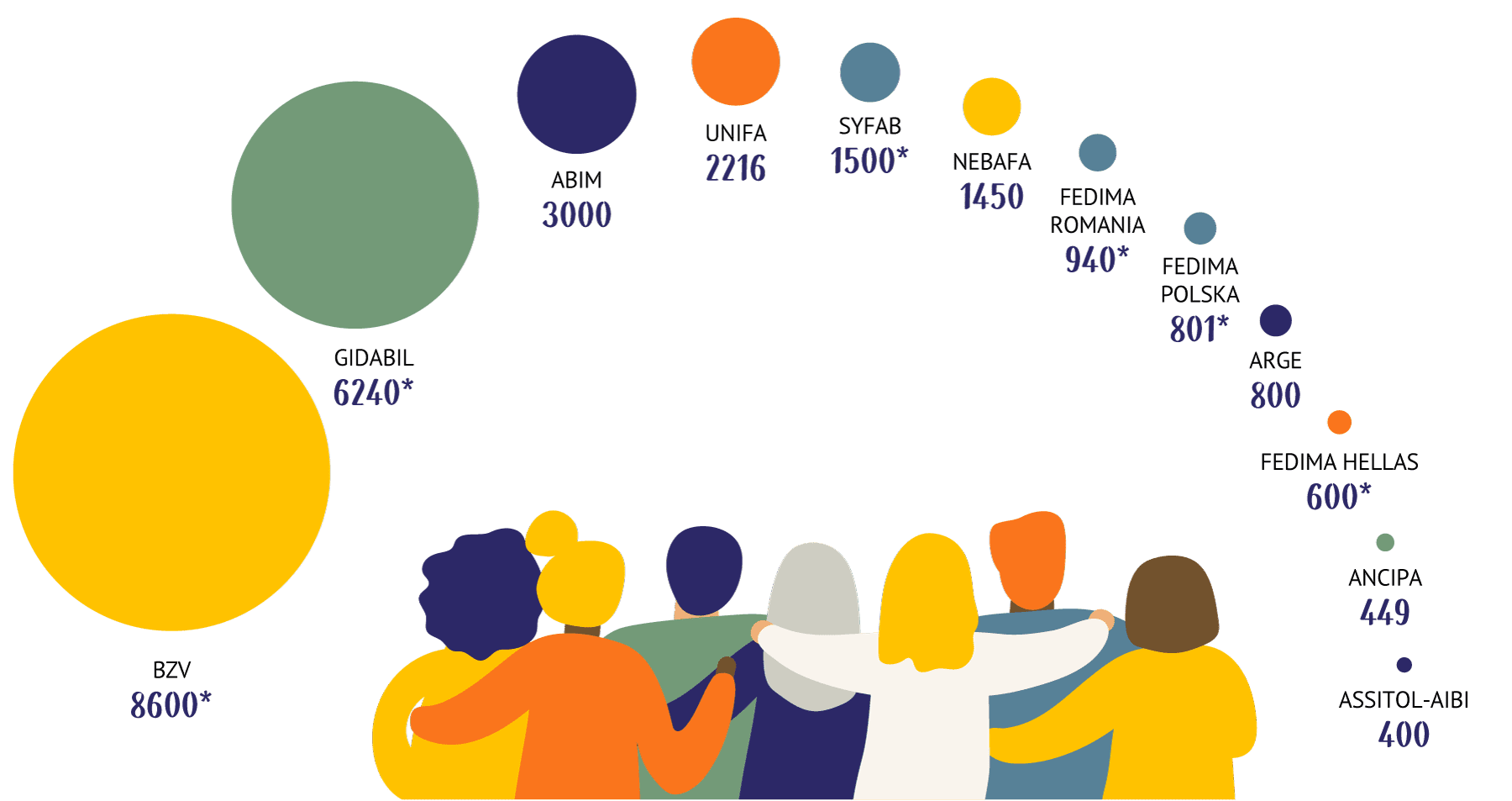

Number of employees of the companies represented by Fedima and the national associations
* Most recent data available
No data available for Fedima España
The companies we represent generate a turnover of over
7 billion EUR per year,
hence contributing to the economic development of European countries.
| Fedima | 7 EUR billion |
|---|---|
| BZV | 1.6* |
| GIDABIL | 1.4* |
| ABIM | < 0.4 |
| SYFAB | 0.3* |
| NEBAFA | 0.450 |
| ARGE | 0.275 |
| UNIFA | 0.970 |
| ANCIPA | 0.1 |
| ASSITOL-AIBI | > 0.1 |
| FEDIMA Hellas | > 0.1* |
| FEDIMA Romania | > 0.1* |
| Fedima España | < 0.1* |
| FEDIMA Polska | < 1.1* |
Turnover generated by companies represented by FEDIMA (EUR billion)
* Most recent data available
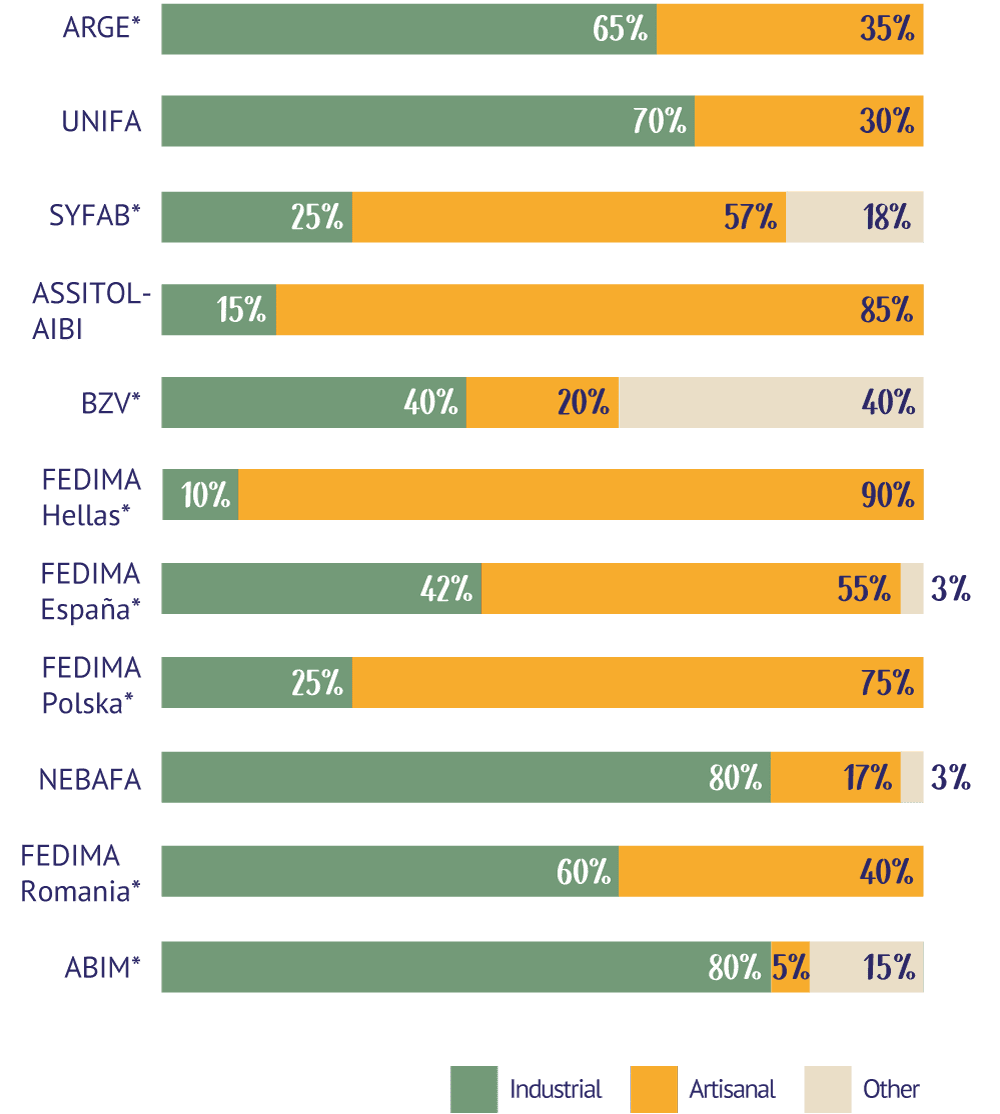

Market share by type of bakery (%)
* Most recent data available
No data available for ANCIPA and GIDABIL: N.A.
How we work
Fedima’s work is guided by an ambitious strategy to approach the opportunities and challenges the Association is currently facing. This strategy aims to strengthen Fedima’s position in the EU political landscape and ensure a sustainable bakery and pastry industry.
The General Assembly is the highest governing body composed of all 13 Fedima member National Associations. The General Assembly can bring modifications to Fedima’s Statutes and approve the Association’s annual budget, other than electing the Board, Fedima’s leadership and management body.
The Secretaries-General Committee gathers the Secretaries General of the National Associations and acts in an advisory capacity to the Board, providing a forum for exchange between Fedima and its member associations to develop and implement a coordinated strategy on key issues and exchange best practices.
The CEOs of companies operating in the sector which are present in some of Fedima’s National Associations gather in the Advisory Committee. These companies provide an additional financial contribution to Fedima’s annual budget and advisethe Board on the implementation of the strategic objectives of the Association.
Fedima’s strategy is developed by the Secretariat and mandated by the Board. In a work programme covering 12 months, the Secretariat supports the 5 Workstreams and focuses on building a solid foundation to respond to Fedima’s long-term vision. Every year, the Association’s strategy is reviewed and adjusted according to the needs and priorities of Fedima and its members.


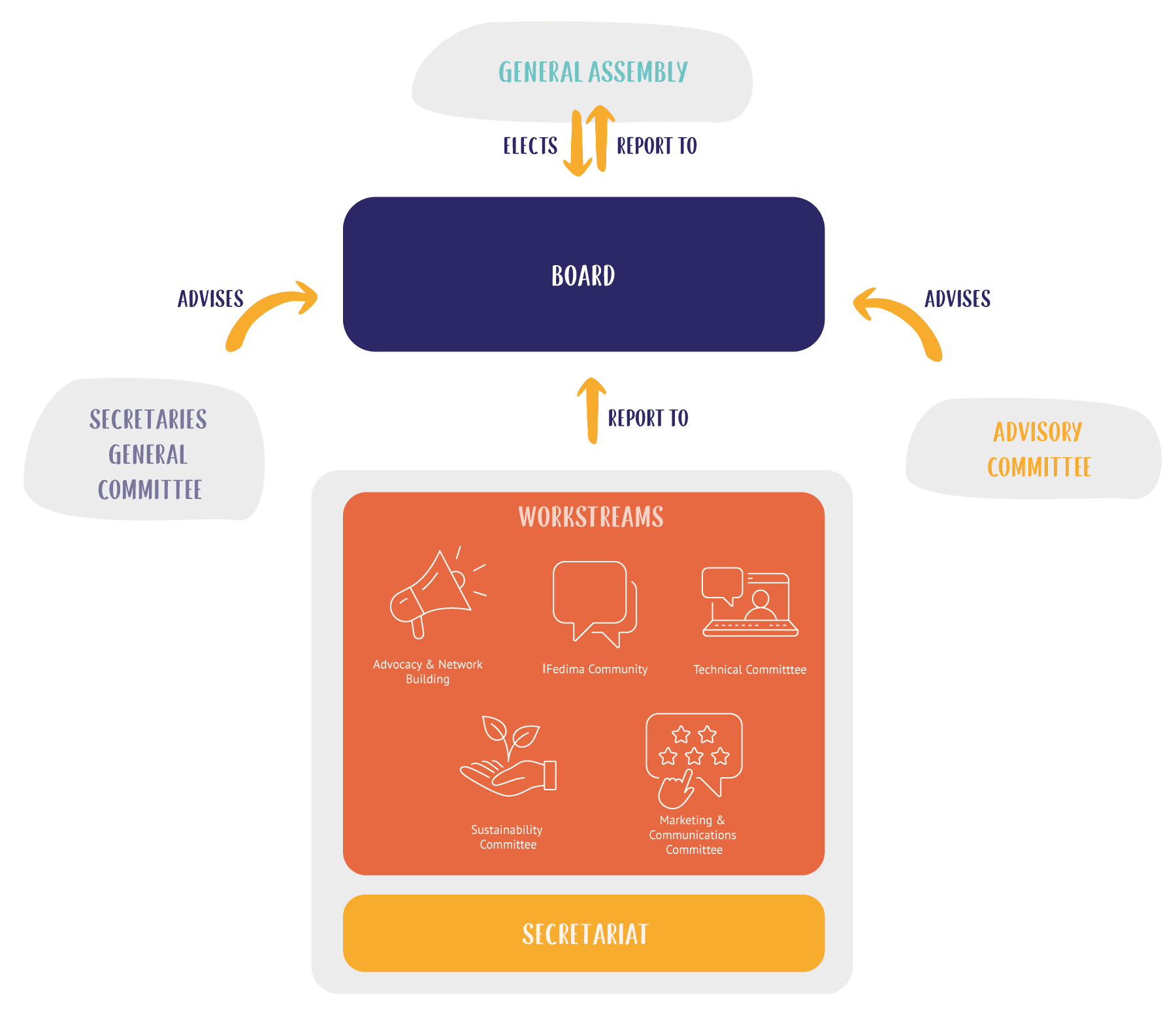

Fedima Board Members


Thomas LESAFFRE
Lesaffre International
President


Juan Carlos PUENTE
Zeelandia
Vice-President


Enric VALLS
Puratos
Treasurer


David AMOS
ABIM (UK)


Luis BORRELL
Fedima España (Spain)


Sébastien JOLLET
SYFAB (France)


Christian SKULTE
ASSITOL (Italy)


Peter VERHAGEN
NEBAFA (Netherlands)


Carine CHINCHOLLE
CSM Ingredients


Laurent GUERINDON
AB Mauri
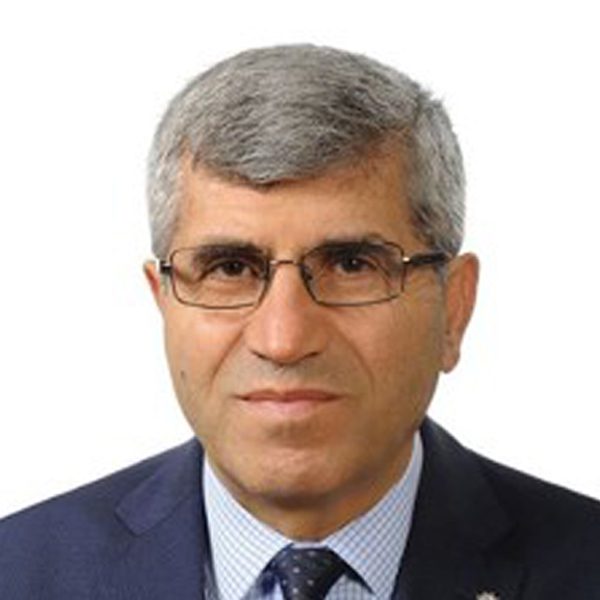

Dr Mehmet Cetin DURUK
GIDABIL (Turkey)


Rolf AHDEL
Orkla Food Ingredients


Wolfgang MAYER
Backaldrin
Our people
Technical Committee
Chair: Sofia MORAIS (Puratos)
- Basak ALTINTAS (GIDABIL)
- Marlene BILJSMA (NEBAFA)
- Georg BOCKER (BZV)
- Igor CALDERARI (ASSITOL)
- Isabelle CHASSEDIEU (SYFAB)
- Carine CHINCHOLLE (BZV)
- Christof CRONE (BZV)
- Nela DRAGOMIR (FEDIMA ROMANIA)
- Massimo FUSARI (ASSITOL)
- Daniela HOBEN (BZV)
- Mirjam KERCKHAERT (NEBAFA)
- Judith KRUISE (DawnFoods)
- Thomas KUNTE (BZV)
- Madeleine LAURIOZ (SYFAB)
- Sophie LION (SYFAB)
- Olivier MAIGRET (UNIFA)
- Matteo NEGRONI (ASSITOL)
- Denise CRANE (ABIM)
- Indika PATHIRATHNA (ABIM)
- Olatunde RAY-ODEKEYE (AB Mauri)
- Catherine STEVENS (ABIM)
- Havva SERTOGLU (GIDABIL)
- Serkan SEVINÇ (GIDABIL)
- Clara SUNYOL (Fedima España)
- Mark VAN MULDERS (UNIFA)
- Maarten VAN OORT (NEBAFA)
- Wendy LINTSEN (AB Mauri)
- Linda VAN ZONSBEEK (NEBAFA)
- Peter WEEGELS (NEBAFA)
- Elsie Rose REAVILES (IRCA
Sustainability Committee
Chair: Jean-Philippe MICHAUX (Puratos)
- Sofia BARBOSA (AB Mauri)
- Cristina CASANOVA (Dawn Foods)
- Carine CHINCHOLLE (CSM Ingredients)
- Tofike CHRIFI (SYFAB)
- Sandrine DOBEL (Lesaffre)
- Laura DOPPLER (Backaldrin)
- Ibai JIMENEZ (Zeelandia)
- Sylvain LEPLONT (Lesaffre)
- Hulusi OZKAN (GIDABIL)
- Simona PALUMBO (IRCA)
- Antonella PINTO (IRCA)
- Ophélie ROBLOT (Lesaffre)
- Johannes ROGAAR (Dawn Foods)
- Beatriz SANCHEZ (Fedima España)
- Recep SARPAY (GIDABIL)
- Albane SIRAMY (CSM Ingredients)
- James SLATER (ABIM)
- Henri STARON (AB Mauri)
- Carlotta TRUCILLO (ASSITOL)
- Peter WEEGELS (NEBAFA)
Marketing & Communications Committee
Chair: Kris DIERCKX (Zeelandia)
- Bora AKIN (GIDABIL)
- Silvia ASSIRELLI (CSM Ingredients)
- Sofia BARBOSA (AB Mauri)
- Igor CALDERARI (ASSITOL)
- Majella de BRUIJN (Dawn Foods)
- Guillaume DEHANDSCHOEWERCKER (Lesaffre)
- Sole HIJANO (FEDIMA España)
- Philippa KNIGHT (ABIM)
- Indika PATHIRATHNA (ABIM)
- Thibaut RENARD (Lesaffre)
- Michael SCHOFIELD (British Bakels)
- Etienne VERHOEF (Sonneveld)
Secretariat
- Dirk VAN HAM, Secretary General
- Isabelle DE VINCK, Association Manager
- Agathe VAN DE PLASSCHE, Programme Manager
- Oana IACOB-LE ROY, Policy Officer
- Sybila GALERA, Sustainability Officer
- Elena LIVIERO, Communications Officer
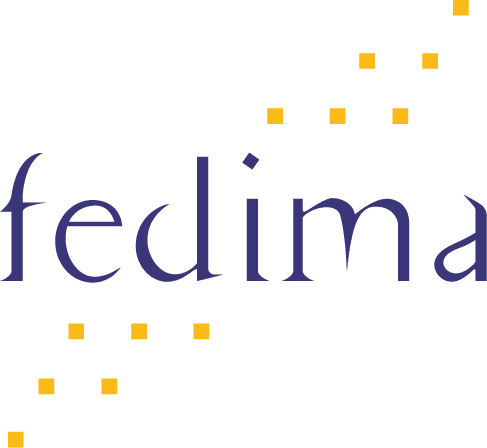

Federation of the European Manufacturers and Suppliers of ingredients to the Bakery, Confectionery and Patisserie Industries ASBL
Rue de la Loi 38, boite 5 - 1000 Brussels, Belgium
Tel.: +32 2 895 43 29 - Email: secretariat@fedima.org
Website: www.fedima.org
EU Transparency register : 904362515084-73
Annual Report 2023 pdf version
